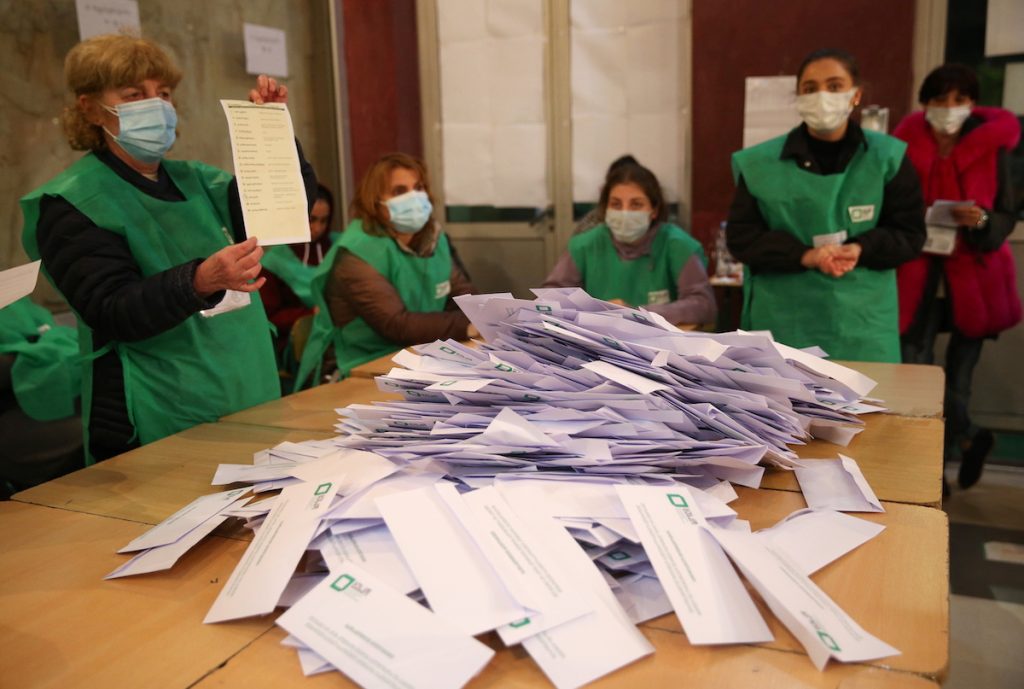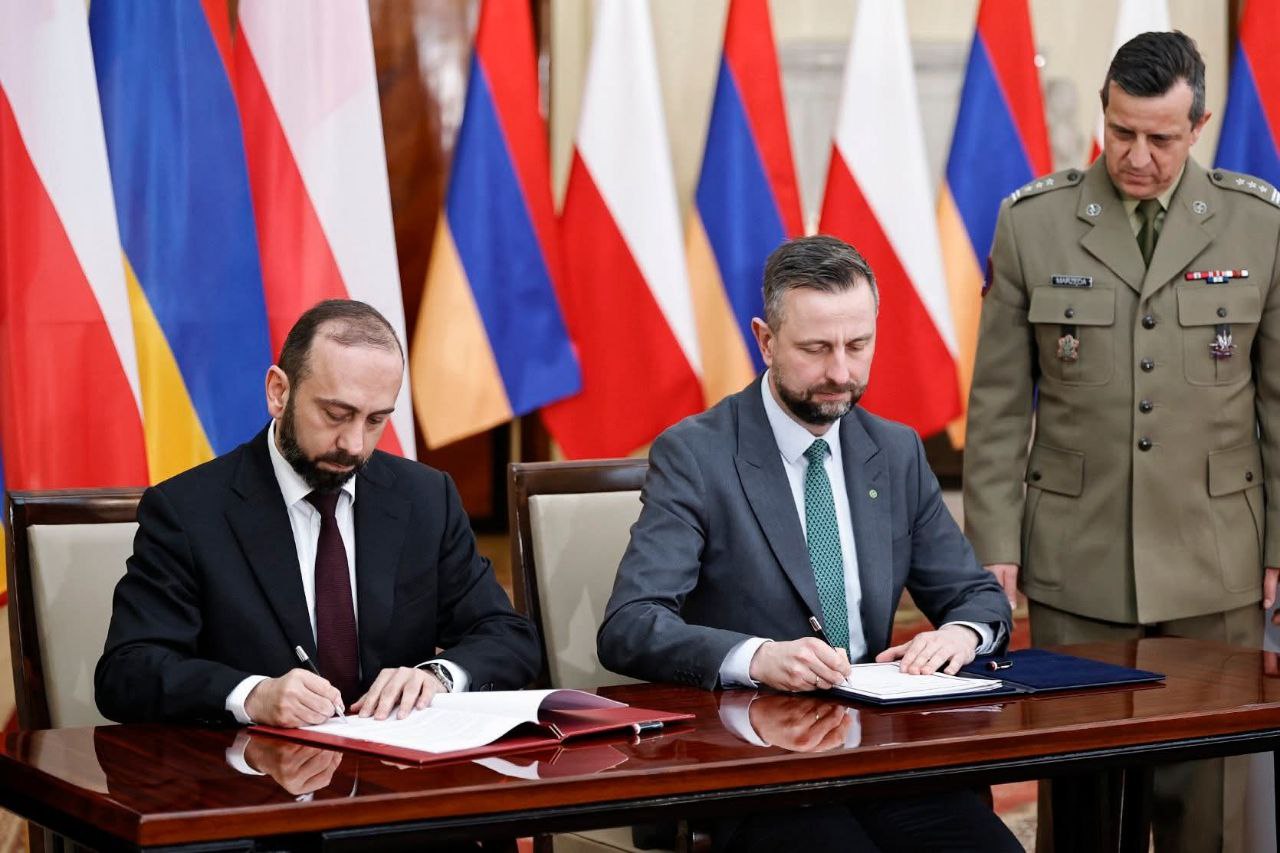Opposition vs Georgian Dream - it's a close-run, everything will be decided in the second round
The second round of municipal elections in Georgia is taking place on October 30 in five cities and 15 municipalities, where opposition and government candidates compete in a close run.
In the remaining 44 municipalities, candidates from the ruling Georgian Dream party won in the first round.
In fact, this is the first time that elections to local self-government bodies can become the shortest path to the government change in Georgia.
On October 2, 2021, the first round of elections to local self-government bodies took place. This time, municipal elections have become of a decisive significance for the future of Georgia as many treat them as a referendum. According to the agreement signed between the opposition and the authorities through the mediation of the European Council, if the ruling party gains less than 43% of the votes, the opposition’s demand to hold early parliamentary elections must be fulfilled.
The ruling party has already avoided this threat – in the first round, Georgian Dream received 46.69% of the vote, the main opposition party United National Movement – 30.7% (the party was created by ex-president Mikhail Saakashvili).
However, in the first round, the opposition showed that it was supported by an impressive part of the population – the second round of mayoral elections was appointed in all large cities – Tbilisi, Batumi, Kutaisi, Rustavi, Poti and Zugdidi.
According to preliminary polls, the opposition candidates are expected to win (almost all of them from the United National Movement) – except Tbilisi. Here, polls showed the advantage of the current mayor Kakha Kaladze.
The elections are taking place amid the hunger strike of ex-President Mikheil Saakashvili, who returned to Georgia before the first round and was immediately arrested.

Polling stations throughout Georgia opened at 08:00 and voting will last until 20:00.
According to the Central Election CommissionIn, the first round, which took place on October 2, voter turnout was 51.92% with a total of 1,815,776 people coming to the voting stations.
- Bribery, intimidation, voter pressure – October 2 municipal elections in Georgia
- Local self-government elections in Georgia: referendum, cocaine and bloody billboards
Who is running in Tbilisi and four other large cities?
In Tbilisi, in the first round, the Georgian Dream candidate, the incumbent mayor of Tbilisi, Kakha Kaladze, won 45% of the vote, and the United National Movement candidate, Nika Melia, 34.1%.
Both candidates will compete against each other in the second round.
In Batumi, the candidate from the united opposition Giorgi Kirtadze (who won 41.96% in the first round) will be running against the ruling Georgian Dream candidate Archil Chikovani (41.07% in the first round).
Rustavi – Nino Latsabidze from the Georgian Dream (44.83%) will compete against David Kirkitadze from the National Movement (43.54%) for the post of mayor.
Kutaisi: opposition candidate Khatia Dekanoidze (43.3%) vs ruling party candidate Ioseb Khakhaleishvili (41.45%).
Poti: opposition candidate, former Tbilisi Mayor Gigi Ugulava (38.0%) is running against former deputy of Sakrebulo (local self-government) of Poti Beka Vacharadze (46.8%).
In addition to these major cities, the second round of elections is also held in the following self-governing communities:
- Telavi;
- Tianeti;
- Kareli;
- Khashuri;
- Tsageri;
- Bagdati;
- Tskhaltubo;
- Ozurgeti;
- Senaki;
- Martvili;
- Hobie;
- Zugdidi;
- Tsalenjikha;
- Chkhorotsku;
- Khelvachauri.
Opposition managed to unite after the first round
The main event after the first round of elections was the opposition’s ability to unite under the number 5 ( in the elections this number is traditionally taken by the United National Movement) and act as a united front against the candidates from the Georgian Dream.
The party of former Prime Minister Giorgi Gakharia, which took third place in the first round, was not included in this union. Gakharia, who is a fairly popular politician in Georgia, stated that he did not support anyone in the second round and did not call on his supporters to vote for any of the candidates.
The opposition has already formed and announced the composition of the coalition government in Tbilisi, which will be appointed if its candidate, Nika Melia, wins. If this happens, for the first time in the history of the city, representatives of different parties will enter the board at all levels in Tbilisi.
- Op-ed: Why Saakashvili came and will there be a Georgian Maidan
- Шесть вещей о Михаиле Саакашвили, которые вы хотели спросить у грузин
Government’s aggressive rhetoric during the pre-election period
The government’s electoral tactics remained the same as in all previous elections, but became more radical. The main message was to “put an end to the influence of the United National Movement and Mikheil Saakashvili”.
The government-controlled media spent the entire campaign period broadcasting stories of people who suffered under Saakashvili’s rule, showing footage of prison violence, which in 2012, became the decisive factor that ended Saakashvili’s rule and brought the billionaire oligarch Bidzina Ivanishvili to power. He continues to be considered the shadow ruler of the country.
The rhetoric of government officials, including top officials, was extremely aggressive.
Opposition focused on coalition and unity
The opposition was focused on attempts to create and strengthen a coalition. Leaders of different parties have appeared together in election videos.
Several specific promises were also made – for example, Tbilisi candidate promised to introduce a system of free meals in public schools and increase pensions.
The number one problem for the United National Movement and the entire opposition throughout the entire pre-election period was the release of former President Mikheil Saakashvili, who remains in prison and has been on hunger strike for over a month.
The opposition, in particular the United National Movement, held a large-scale rally in Tbilisi on October 14 in support of Mikhail Saakashvili. According to political observers and journalists, this was the largest rally under the reign of the Georgian Dream.
Large-scale opposition rallies were also held in Batumi, Kutaisi, Zugdidi and other cities.
Three days before the elections, the authorities also gathered a rally of thousands of their supporters in Tbilisi.


















